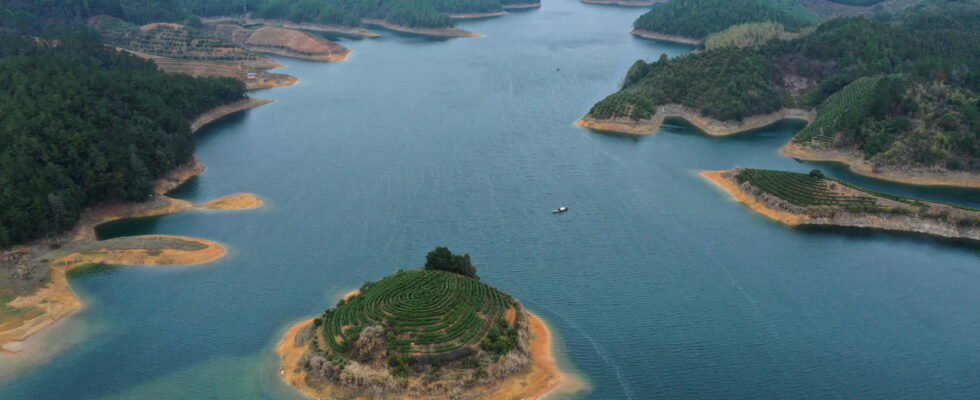Submerged dozens of meters under water, this ancient city is full of treasures.
The myth of Atlantis sparked the fascination with sunken cities and greatly influenced the world of arts and literature. It was Plato, in the 4th century BC, who first described the story of this island that disappeared into the Atlantic Ocean. However, no one knows whether this underwater island ever really existed, but for many, it was mainly a story that was intended, at the time, to serve as a political demonstration.
That said, there are underwater cities today that recall this legend, including one in China, 400 kilometers south of Shanghai, under the artificial Qiandao Lake. Built under the Eastern Han Dynasty, between 200 and 25 BC, and a former economic and cultural center, the city is today located between 26 and 40 meters under the sea.
Known as Shi Cheng, it was not submerged by a natural disaster but was deliberately submerged. In 1959, China built a hydroelectric dam on the Xin’an River. The entire area had to be flooded to accommodate this new reservoir. 290,000 people were evacuated and Shi Cheng disappeared under the waves and sank into oblivion.

The City of Lions, as it was nicknamed, was rediscovered in 2001 while the lake was being explored as a water sports mecca. The beams, murals and ceilings were virtually intact. There were also five entrance gates, over 260 arches and numerous sculptures, including lions. Since the lake water is neither corrosive nor conducive to the expansion of marine life, it preserves the remains of the vanished city, which then appears as a beautiful testimony to the history of the region.
Shi Cheng has since become a tourist spot and especially a dream spot for divers from all over the world. The Chinese government even considered bringing the submerged city back to life, but the project was abandoned due to the colossal cost of such an operation.
